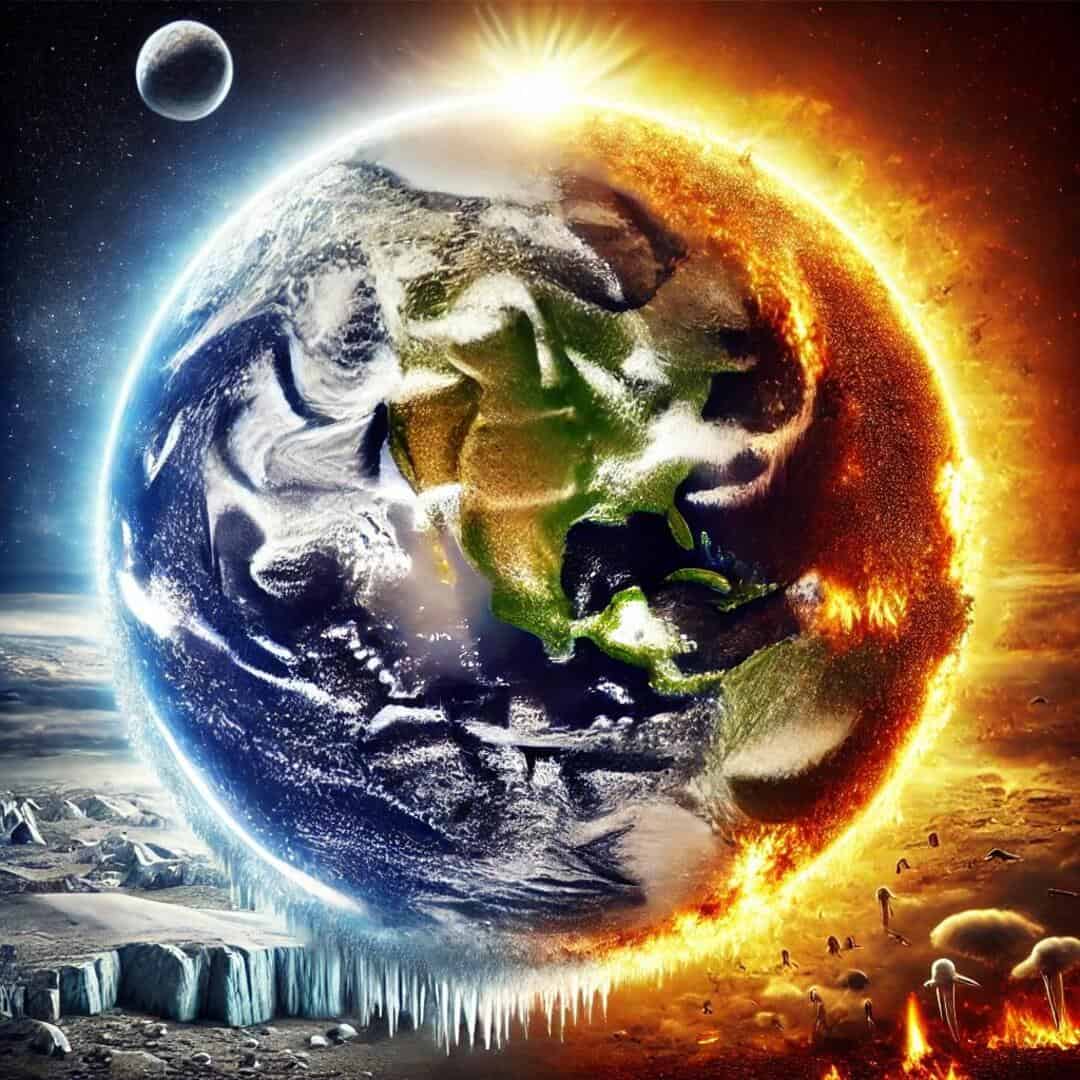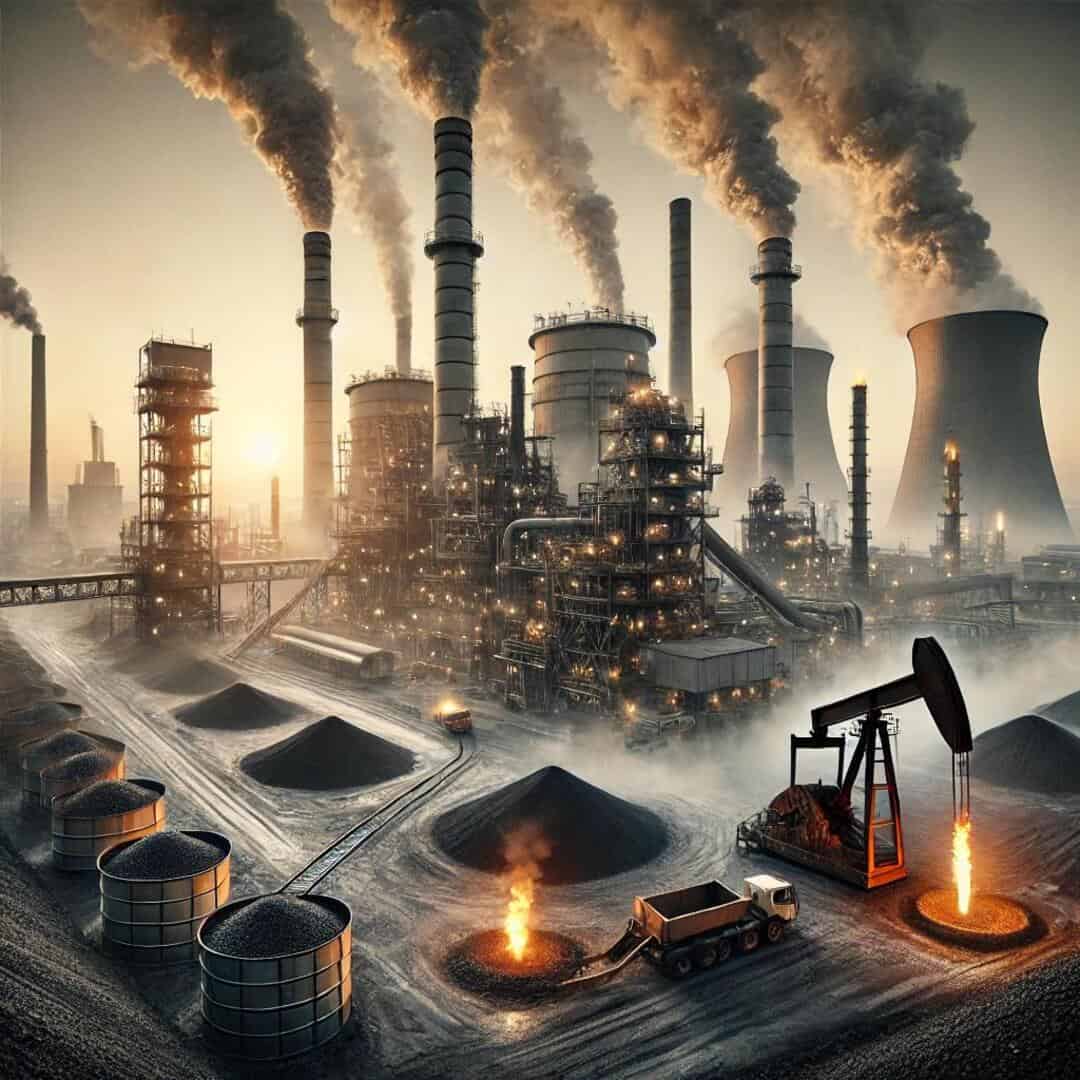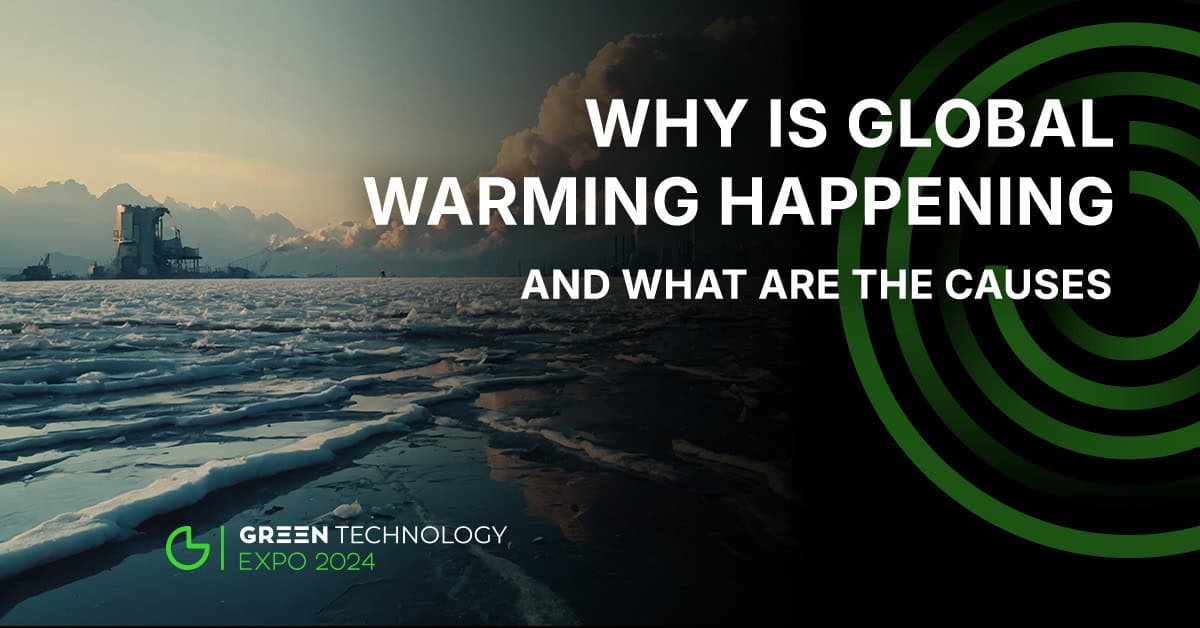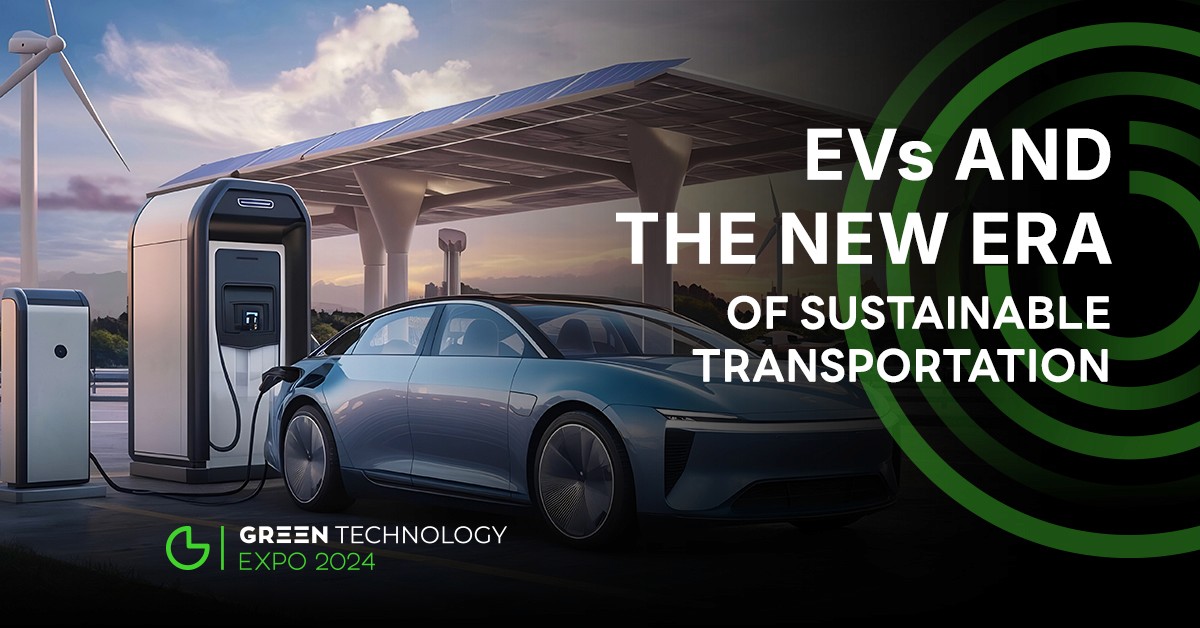Why Is Global Warming Happening And What Are the Causes
Sep 10, 2024
One of the most important environmental concerns of our day is global warming, whose consequences are being felt more and more everywhere. It speaks of the continuous rise in Earth's average temperature, which is mostly caused by human activity. This phenomenon has a direct correlation with climate change, resulting in severe weather patterns, increasing sea levels, and detrimental effects on human health and agriculture.
Rapid urbanization and industrialization have made a substantial contribution to global warming, causing heat waves, catastrophic flooding, and smog-covered cities. To address this dilemma and adopt sustainable solutions, it is imperative to comprehend the origins and impacts of global warming.
This article will define global warming, examine its causes—such as the burning of fossil fuels, industrialization, and deforestation—and show its terrible consequences. We'll also talk about doable solutions to lessen its effects, like switching to renewable energy sources and green technology. The time to act decisively against global warming and create the conditions for a sustainable future is now.
What Is Global Warming?

The average temperature of the Earth has been rising throughout time as a result of human activity, particularly the excessive emission of greenhouse gasses into the atmosphere. This phenomenon is known as global warming. It is a significant component of climate change and is mostly brought on by industrial activities, deforestation, and the combustion of fossil fuels. As a result of the warming effect's trapping of heat in the atmosphere, weather patterns change, extreme weather events occur more frequently, and sea levels rise.
Significant temperature rises have occurred in several of the region's countries, bringing with them more frequent and severe heat waves, droughts, and flooding. Moreover, coastal cities face a threat from rising sea levels and melting Himalayan glaciers, endangering the lives and livelihoods of millions of people.
Combating the effects of global warming begins with understanding it. Not only is global warming a natural cycle, but human activity has sped it up, posing an urgent threat that has to be addressed. We can create plans to reduce its impact and move toward a sustainable, healthier planet by investigating its sources and consequences.
Causes of Global Warming

The main cause of global warming is human activity, which raises atmospheric emissions of greenhouse gasses. Earth's temperature rises as a result of these pollutants' ability to trap heat. Here, we'll examine the main culprits of global warming with an emphasis on their biggest effects.
Fossil Fuel Burning
Fossil Fuel Burning, such as coal, oil, and natural gas, is one of the main causes of greenhouse gas emissions. Carbon dioxide (CO2) and other dangerous gasses are released into the environment when these fuels are used to power homes, businesses, and vehicles. Since the production of electricity from coal and natural gas requires the large-scale burning of fossil fuels to fulfill growing energy needs, these sources of pollution have a major impact on global warming.
Fossil fuel usage has skyrocketed as a result of the region's rapid industrialization. China and India are among the top carbon emitters in the world since they mostly rely on coal for the production of power. The critical need for sustainable energy alternatives is highlighted by the acceleration of global warming caused by this continuous reliance on fossil fuels.
Industrialization
Because industrialization releases greenhouse gasses during production, it has had a significant impact on global warming. Large volumes of CO2, methane, and nitrous oxide are released by factories, which add to the planet's surface warming. Additionally, energy-intensive procedures that produce significant emissions are used in the making of steel, cement, and other materials.
Over the past few decades, economies have significantly industrialized, leading to an increase in emissions. The region's carbon footprint is increasing as new companies and manufacturing facilities are constructed. In addition to increasing temperatures, industrial emissions can have an adverse effect on air quality, which can have health consequences.
Transport and Vehicles
Another important industry that significantly contributes to global warming is transportation. Fossil fuels are mostly used by automobiles, aircraft, ships, and trains, all of which release significant volumes of CO2. The number of automobiles on the road has grown, leading to traffic jams and higher greenhouse gas emissions.
Additionally, freight transportation of products and services contributes to emissions. The increasing amount of commodities being moved across borders due to economic expansion raises concerns about transportation's carbon footprint. To cut emissions from this industry, investments in electric cars and public transit are essential.
Deforestation
The removal of CO2 from the atmosphere is mostly dependent on forests. However, the amount of forest cover has significantly decreased due to logging, urbanization, and deforestation for agriculture. Global warming is exacerbated by the release of stored carbon dioxide into the atmosphere following tree cutting.
Deforestation damages ecosystems and lowers biodiversity in addition to raising CO2 levels. Long-term effects on weather patterns and natural habitats result from this contribution to climate change.
Waste
Although they are frequently disregarded, waste generation and inadequate waste management have a major role in global warming. Methane, a greenhouse gas considerably more strong than CO2, is released by landfills. Methane is released into the atmosphere during the breakdown of organic waste, such as food scraps and plant material, in landfills, intensifying the warming impact. Reducing garbage, increasing recycling, and enhancing waste management techniques can all aid in lowering emissions from this source.
What Are the Effects of Global Warming?
The environment, economics, and public health are all impacted by the pervasive consequences of global warming. These effects worsen as Earth's temperature rises, particularly in locations where a large population lives in sensitive areas.
Melting Ice Caps and Rising Sea Levels
The melting of ice caps and glaciers is one of the most obvious consequences of global warming. Sea levels are increasing as a result of this melting, endangering coastal towns and islands severely. Large areas of land that are vulnerable to sea level rise might be lost to nations like Bangladesh and the Maldives, uprooting millions of people and upsetting economies. Furthermore, millions of people who depend on the Himalayan glaciers for everyday needs and agriculture are under risk from their receding glaciers.
Extreme Weather Events
Extreme weather events are occurring more frequently and with greater severity as a result of global warming. Throughout recent years, heatwaves, floods, typhoons, and droughts have become increasingly common. Typhoons that are more strong are fueled by warmer water temperatures and wreak extensive havoc. Certain places are now more vulnerable to droughts due to extended heatwaves and altered rainfall patterns, which has an impact on the security of food and water.
Impact on Agriculture and Food Security
A significant industry in many nations, agriculture is directly impacted by changes in climatic trends. Planting and harvesting cycles are disrupted by unpredictable meteorological conditions, such as prolonged droughts and inconsistent rainfall. Lower crop yields as a result raise concerns about food security and raise the possibility of famine in areas where farming is a major industry. Raising temperatures can also damage fish populations and injure cattle, which will further diminish food output.
How to Stop Global Warming
Global and individual action must be taken immediately to combat global warming in concert. We can mitigate the impacts of climate change and lower greenhouse gas emissions by embracing sustainable behaviors and green technology. These are some essential tactics for effectively combating global warming.
Using Green Technology
The term "green technology" describes inventions that are beneficial to the environment and reduce our carbon footprint. Smart home systems, energy-efficient appliances, and electric cars are a few examples. We can drastically lower CO2 emissions by swapping out conventional, high-emission technology for eco-friendly ones. We can gain a lot from using green technology in industry, transportation, and daily living because of its expanding metropolitan areas.
Further reducing waste and emissions can be achieved by creating smart grids that optimize energy use using artificial intelligence. Adopting these technologies will help mitigate the continuing climate problem and is essential for a sustainable future.
Adopt Renewable Energy
The transition to renewable energy sources is one of the most effective approaches to counteract global warming. Solar, wind, and hydroelectric power are greener alternatives to fossil fuels with a significantly reduced environmental effect. Given their geographical variety, several Asian nations have significant solar and wind energy potential.
Governments may encourage the use of renewable energy by providing subsidies and creating infrastructure to promote clean energy growth. Countries that reduce their reliance on fossil fuels can reduce emissions and encourage long-term economic prosperity.
Responsible Consumption & Recycling
Reduced trash and increased recycling may significantly reduce greenhouse gas emissions. Individuals may practice responsible consumption behaviors such as purchasing energy-efficient items, decreasing plastic usage, and choosing sustainable packaging. Recycling minimizes the requirement for raw material extraction, resulting in lower emissions.
Promoting the circular economy, in which things are reused, refurbished, and recycled, can contribute to a more sustainable society that values long-term environmental health above short-term benefits.
It’s Time to Change!
Not only is global warming a worry for the future, but it is also an urgent problem that is impacting every region of the world. Its causes, which include burning fossil fuels, deforestation, and industrialization, are human-caused. Its impacts, which include rising sea levels, harsh weather, and problems with food security, are getting worse. There is still hope, though. We can reduce global warming and save the environment for coming generations by implementing green technology, moving to renewable energy, and encouraging responsible consumption.
Every action matters, whether it's utilizing energy-saving equipment or endorsing laws that advance sustainability. Governments, corporations, and people all need to collaborate in order to cut emissions and adopt strategies that promote long-term environmental health. It's time to safeguard our natural resources, reevaluate our consumption habits, and make investments in renewable energy.
Fighting global warming calls for cooperation from all parties. Reversing the harm will grow more difficult the longer we wait. The moment has come to adapt and move in the direction of a sustainable future in which nature and people may live in harmony. We have the ability to create a better world, and the moment to take action is right now.
News
What Is Green Innovation in Business?
Dec 17, 2024
EVs and the New Era of Sustainable Transportation
Dec 3, 2024
Eco-Friendly Technology Trends to Watch for a Greener Future
Nov 19, 2024





